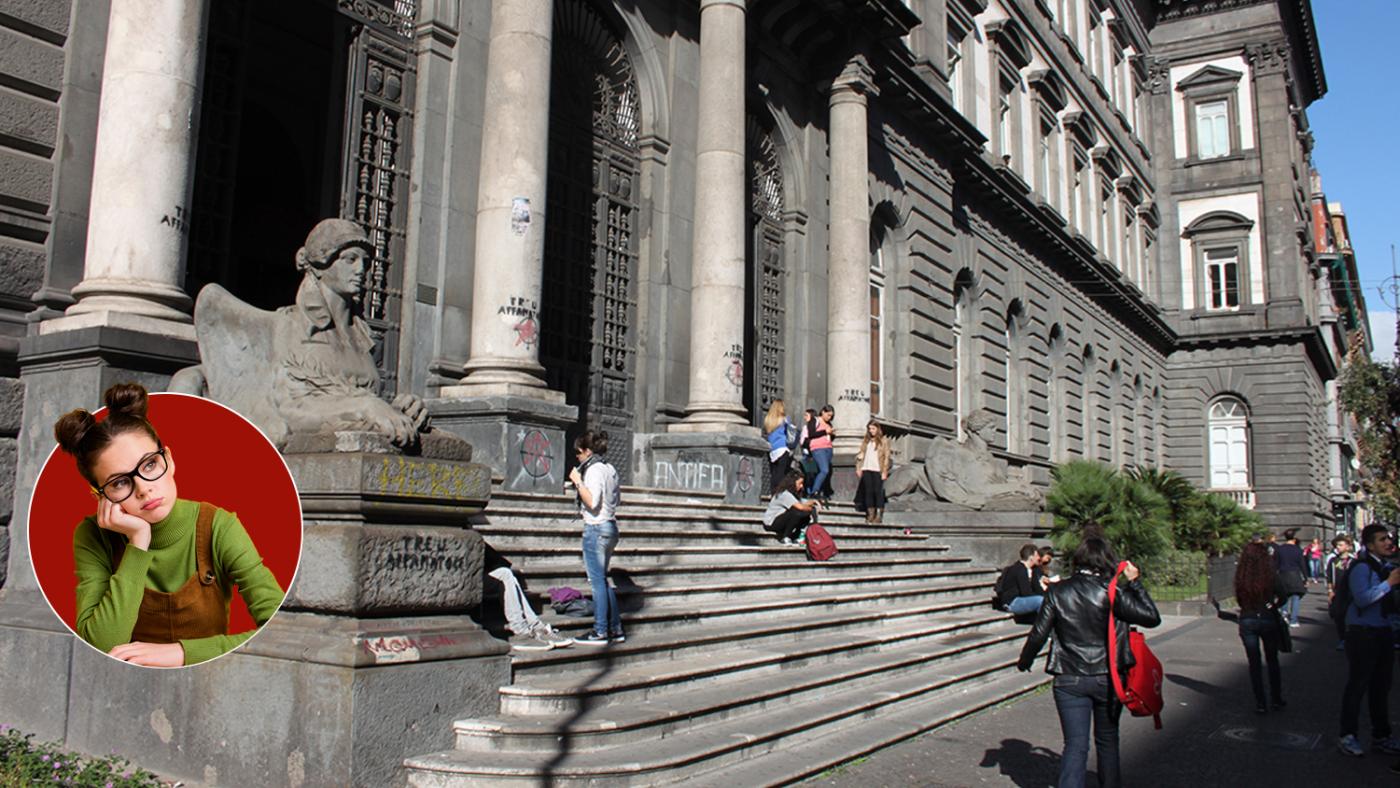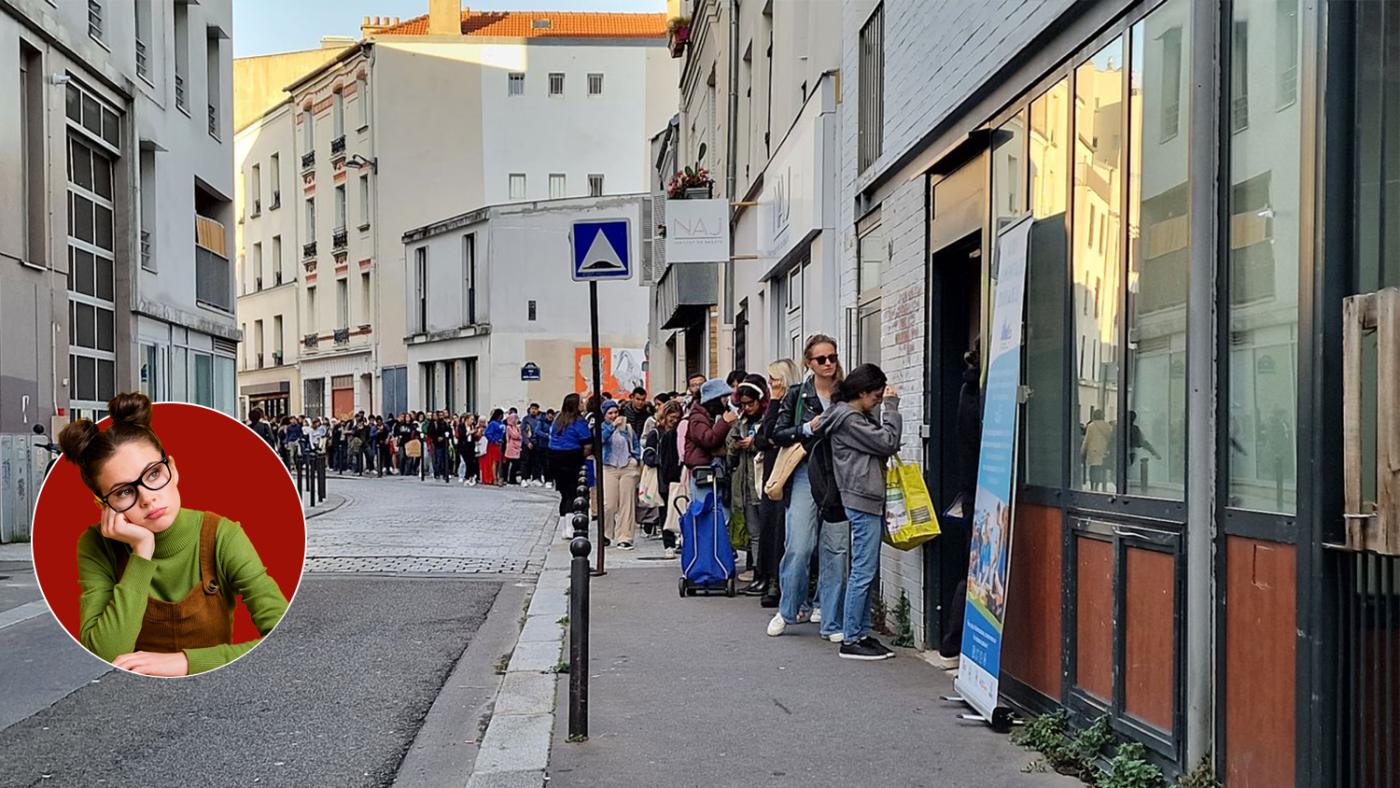Are all European students as stressed out as Dutch ones?
‘In Sweden, it’s normal to take a break’

Students’ mental health has been on the political agenda ever since the pandemic ended – not only in the Netherlands but in other European countries as well. For example, French President Emmanuel Macron advocated free psychological help for students during Covid, and almost every single Western European country has conducted research on how the pandemic affected students’ mental health. In the entire continent, it looks like Covid has exposed a long-standing problem: students are under constant pressure to perform.
However, pressure to perform alone doesn’t explain the problems students have been running into. Worries about housing and financial situation play a role here, too. The cost of living is rising not only in the Netherlands, but in other countries as well. In France, poverty is rising among students, so much so that more and more students are recurring to food banks.

Photo:The University of Naples Federico II, edited by DUB
Always perform at your best
Peppe (27) is a recent graduate from Utrecht. He obtained his Bachelor’s degree in Naples, Italy, and followed with a Master’s in Linguistics at UU. Comparing stress levels in both countries, he says: “I’ve experienced a lot of stress, both during my Bachelor’s in Italy and my Master’s in the Netherlands. One of the biggest differences between the two countries is that exams are mostly oral in Italy, while in the Netherlands written exams prevail. That was a new experience for me, it was quite hard. I felt as though I wasn’t sufficiently prepared: the transition to the Dutch academic system wasn’t easy. In addition, I feel like in Italy there are peak moments in which you’re expected to perform, such as exam weeks. Other than that, you can manage your time yourself. In the Netherlands, you’re expected to perform constantly. You’re never done, because there is always another assignment, another presentation, papers and tests are due at the same time. That makes for a high workload.”
Peppe adds that there was a lot of competition in his Master’s. “Teachers would split the class into two groups for work assignments: one group of students who were planning to do a PhD and another group of students who didn’t have that ambition. The intentions were good. They meant to facilitate people to exchange ideas and inspire each other, but it felt like a competition, as if the PhD students were better than the rest of us.” Even so, he says his experience was overall positive. “Dutch teachers expected a lot from us, but they were also approachable, which didn’t happen in Italy. Things are a lot more hierarchical there, and you don’t feel as though you’re at the same level as the teacher.”
Alessia (21) also felt under pressure when she came to study in the Netherlands after graduating from high school in Germany. The number of credits required to pass from the first year to the second year of the Bachelor’s programme (also known as BSA, Ed.) was the biggest source of stress for her. She was afraid of not making it past the first year. Fortunately, that didn’t come to pass, and she’s almost finishing her Master’s degree in Utrecht. But she has other reasons to worry now. “Soon I’ll graduate and I will not receive any financial support anymore. I’m anxious about not finding a job right away. Maybe I’ll work full-time at a café if I don’t find anything.”
She was so stressed out during her studies that she even had a hard time making friends because of it. In Germany, her experiences of study-related stress were different. “It’s all about getting good grades there. That is your key to future success. In the Netherlands, it’s more about reflection and gaining experiences. But that can still generate a lot of stress. I think a middle ground would be ideal.”

Lower work pressure in Sweden. Photo Shutterstock, edited by DUB
In Sweden, students have time to rest
Fay (26) is a Dutch student who’s pursuing her second Master’s degree in Sweden. She can relate to the sources of stress mentioned by Alessia and Peppe. “In the Netherlands, I had the feeling that I should be studying all the time, otherwise I’d fall behind. Whenever I did something for myself, I felt like I was procrastinating. I’m so much happier in Sweden. I can go out or go to the gym without feeling guilty. Work pressure is really lower here, which doesn’t mean that I’m not learning anything. It’s just that it’s more about the content, not about the grades. It’s about quality, not quantity.”
What does that look like in practice? “When I got a Master’s in Business Communication & Digital Media in Tilburg, I had three courses. Each one of them had weekly lectures and work groups, and I needed to prepare for every single one of them. There were weekly assignments and papers, as well as exams from time to time. In Sweden, there are fewer things to read and considerably fewer assignments. Instead, we discuss the materials a lot more. They are more focused on processing the materials rather than just stamping them. Besides, you don’t get grades here. You can either pass, no pass, or pass with distinction, which means that you’ve done exceptionally well. But getting a distinction is not really the goal. Students are not competitive, and you can get as many resits as you need. That would be unthinkable in the Netherlands.”
Moreover, Sweden has a number of structural measures that make sure students aren’t as stressed out, says Fay. Studying at university is free, so students don’t have to worry as much about their finances. In the Netherlands, many students have to work aside from their studies while Swedish students have more time to rest. “Students in the Netherlands have to juggle between a lot of stuff. If you can’t go to a friend’s party because you have to study, people react negatively. Here, people just get it. Teachers give a good example by postponing lectures when they have a personal problem. This way, they show that there is more to life than just work or study, and that it is good to take your health into consideration.”

French students line up for free food. Photo NOS archives, edited by DUB
In France, you have to figure it out, but things are changing
Louise (24) comes from France. She is pursuing a Master’s in Clinical Psychology in Tours. She, too, knows what stress feels like. “Only 25 students are admitted to my programme out of approximately 3,000 applications, which means that I spent the first two years at university making sure my performance was good enough to get a chance at being admitted to my Master’s of choice. As a result, I got stomachaches ahead of exams and during exams too, not to mention I isolated myself because I got annoyed easily. I couldn’t think of anything other than my exams and I felt guilty whenever I took some rest. Looking back, I wish I had taken a little bit more rest.”
In France, there are private universities where there isn’t as much pressure to perform. They cost a lot of money, so teachers are more flexible and everyone ends up passing the courses. Teachers working at public universities are paid less, so they are less able to delve into a student’s situation. “You’re really expected to fend for yourself there,” says Louise, adding that students definitely have a touch time, financially speaking. However, she doesn’t know any student who needed to make use of food banks. “Maybe they just don’t dare to talk about it.”
Aïda (21) also comes from France. She is a Master’s student in Sustainable Innovation in Nice who’s noticed that her migraines get worse when study-related stress increases. According to her, her programme is demanding, as it includes not only lectures and exams but also projects with companies. She likes that but admits that it’s burdensome. Hence the headaches. “Sometimes I really can’t do anything because I can’t see clearly anymore. That’s how bad it gets. One of my teachers knows about it and helps me figure out how I can deal with it.” In general, she finds French universities rather old-fashioned and indicates that talking about mental health isn’t always easy. However, she underscores that things are changing. “People have been paying more attention to it since the pandemic. As a result, there is a psychologist available for students in every campus.”
Wellbeing Week
UU's Wellbeing Week will take place from November 20 to December 1. During this week, UU will offer an extensive programme about several aspects of wellbeing: mental, physical, spiritual and social wellbeing will be covered, as well as financial, environmental, occupational, and intellectual wellbeing. You can find the programme in full here.